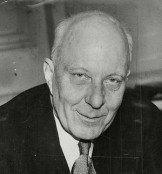|
 By the end of the 1930s the British government was no longer as supportive of Zionism as it had been earlier. British Politicians were now less likely to subscribe to fundamentalist Christian views and many were questioning western nations's authority to administer traditional Arab lands with the intention of preparing it as a Jewish Homeland. Britain's prime minister, Winston Churchill, however, remained a staunch Zionist supporter until the assassination of his friend Lord Moyne. That event caused many formerly pro-Zionist politicians from all political parties to change their views. By the end of the 1930s the British government was no longer as supportive of Zionism as it had been earlier. British Politicians were now less likely to subscribe to fundamentalist Christian views and many were questioning western nations's authority to administer traditional Arab lands with the intention of preparing it as a Jewish Homeland. Britain's prime minister, Winston Churchill, however, remained a staunch Zionist supporter until the assassination of his friend Lord Moyne. That event caused many formerly pro-Zionist politicians from all political parties to change their views.
However, that trend was not reflected in the 1945 Labour Party Conference. At almost every Labour conference between the wars, most delegates had supported increased Jewish immigration into Palestine. The exceptions were certain trade union delegates who adhered to Marxist policy that Palestine was the national home of Palestinian Arabs and Jews already had national homes in the countries of which they were citizens.
 In 1944 Hugh Dalton, a Zionist stalwart, had drafted the Palestine section of the labour party statement on its International Post-War Policy. Jews should be allowed to enter Palestine in such numbers that they became a majority in the country even if it meant having to expel Arabs. He did this without consulting the Jewish Agency. David Ben-Gurion was quick to respond that Jewish immigration and colonization should not be undertaken at the expense of Arab rights. A few weeks before the post-war British parliamentary elections, Hugh Dalton declared it was labour policy to allow unrestricted Jewish immigration into Palestine. (The photograph of Hugh Dalton is on the right)
In 1944 Hugh Dalton, a Zionist stalwart, had drafted the Palestine section of the labour party statement on its International Post-War Policy. Jews should be allowed to enter Palestine in such numbers that they became a majority in the country even if it meant having to expel Arabs. He did this without consulting the Jewish Agency. David Ben-Gurion was quick to respond that Jewish immigration and colonization should not be undertaken at the expense of Arab rights. A few weeks before the post-war British parliamentary elections, Hugh Dalton declared it was labour policy to allow unrestricted Jewish immigration into Palestine. (The photograph of Hugh Dalton is on the right) It was no wonder then that Palestinian Jews cheered when, at the end of July 1945, British voters gave the Labour Party a resounding victory.
The Labour government came into power in a country virtually bankrupted by bombing and wartime expenditure with a promise to give employment to all servicemen. The country went into extreme austerity measures. Wartime rationing, instead of being discontinued, was extended to cover even more items not rationed.
When President Truman asked Britain to allow 100,000 European Jewish displaced persons to enter Palestine, the government, with no money to carry out the request,refused. The Jewsof Palestine were incensed and all three underground movements, Haganah, Irgun and Lehi, united to form a Jewish Resistance Movement against the British.
Next - The Jewish United Resistance Command Group
|